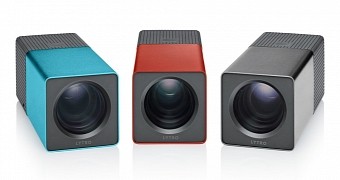Lytro may not be world-famous due to the relative youth of the brand, but their image and video capture technology is so revolutionary that they have had absolutely no problem receiving funding.
The latest we heard from the company is that it has decided to shift direction away from “normal” cameras and towards virtual reality.
There should still be a new Lytro camera coming this or next year, but most of the resources of the company have been diverted.
This means that some people will be laid off their jobs, cutting the number of employees from 130 to around 70-110. Transition is often painful like that.
However, the decision to go through with this shift in focus has already paid off in the form of an investment of $50 million led by GSV Capital. That's around €44 million according to exchange rates.
Considering how Lytro's image capture technology works, theirs might become the best virtual reality technology in the world.
The light field camera
Lytro made its debut a few years back when it introduced a small, rectangular tube that was actually a camera that captured photos with a file size of around 65 MB.
Which is to say, they were very, very big files. This is because the way images are captured is not the normal method.
Instead, the Lytro camera captured the position of light at every point in space. Coincidentally, this means that any image captured with a Lytro could be refocused after the fact.
Say you snapped a shot with a friend in the foreground. You could modify the image to have the branch or person behind him as the so-called center.
The new direction
There is hardly any need to explain just why Lytro's technology could be good for virtual reality. Just as photos can be captured with their whole light field, the opposite can be achieved.
We expect virtual reality simulators and games to make full use of light field physics in order to make the 360-degree field of view of VR headsets more realistic.
Actual farsight, telescopic vision or even multi-spectrum vision could be realistically simulated as well. Insofar as superpowers can even be called realistic anyhow.
VR video is, at present, still a nascent field of study, so Lytro stands a good chance of becoming the leading brand in 360-degree, multi-focus film recording and rendering.

 14 DAY TRIAL //
14 DAY TRIAL //